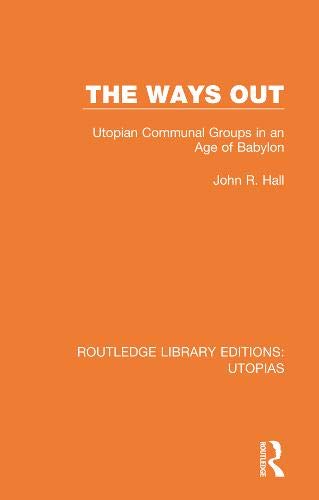

Most ebook files are in PDF format, so you can easily read them using various software such as Foxit Reader or directly on the Google Chrome browser.
Some ebook files are released by publishers in other formats such as .awz, .mobi, .epub, .fb2, etc. You may need to install specific software to read these formats on mobile/PC, such as Calibre.
Please read the tutorial at this link: https://ebookbell.com/faq
We offer FREE conversion to the popular formats you request; however, this may take some time. Therefore, right after payment, please email us, and we will try to provide the service as quickly as possible.
For some exceptional file formats or broken links (if any), please refrain from opening any disputes. Instead, email us first, and we will try to assist within a maximum of 6 hours.
EbookBell Team

4.8
64 reviewsA comparative analysis of both secular and religious communal groups in contemporary America, this study, originally published in 1978, shows that contemporary communalists stand in relation to collectivism much the same as early Protestants stood in relation to individualism – as the self-proclaimed pioneers of the new age. There is great diversity among communal groups, a diversity which is found to stem from alternative orientations towards time and alternative assumptions about the cognitive status of the social world.
The author has made use of a phenomenologically derived typological framework to organize the data he has obtained through living in and visiting a number of communal groups. Within this framework, Alfred Schutz’s ‘mundane’ phenomenology and Max Weber’s interpretive sociology are employed as ways of approaching the situated sociology of knowledge in various communal groups.
Six ideal types of communal groups are described: the commune, the intentional association, the community, the warring sect, the other-worldly sect and the ecstatic association. Two of these types – the intentional association and the community – are identified as participants’ efforts to demonstrate ‘worldly utopian’ models for the reconstruction of society at large.